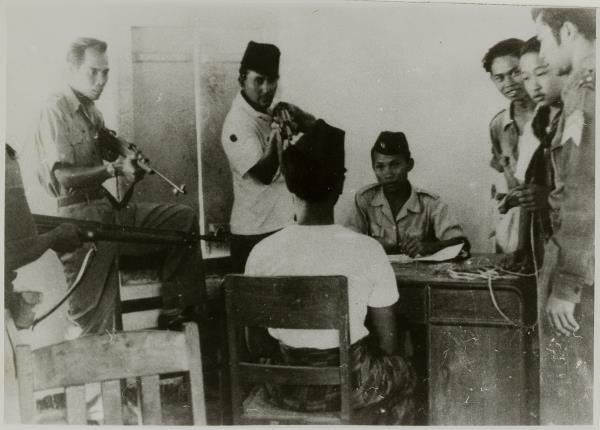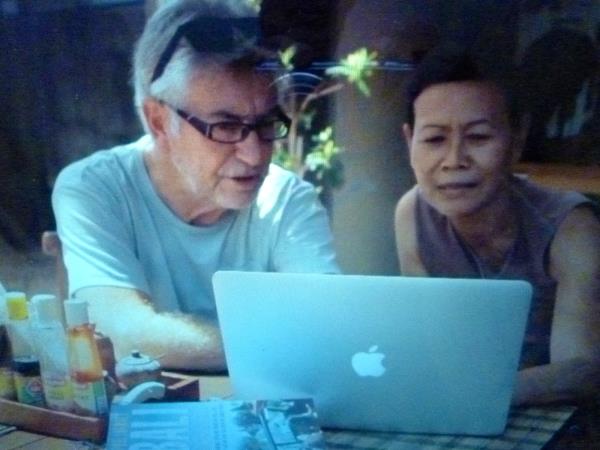By PHIL JARRATT
MY HEART goes out to Myuran Sukomaran and Andrew Chan and their families as the clock ticks down to their seemingly inevitable executions.
No matter what view you take on the intricate relationship between crime and punishment, and no matter what you think about the insidious nature of the heroin trade, only the truly merciless among us would not concede that a decade spent locked up and waiting to be shot was sufficient punishment.
As the avenues of appeal are exhausted, I find it more and more difficult to watch the now-familiar images of these men doing their daily routine in Kerobokan, trying to put a brave face on their fate, or to read reports of their distressed families treating every moment with them as possibly the last.
This is a human tragedy of epic proportions, and it makes me sad and angry in equal measure that Indonesian President Joko Widodo cannot or will not exercise clemency, if for no other reason than as an act of mercy, an option that was expressed eloquently and passionately by Malcolm Turnbull on the ABC’s Q&A last week.
But I’m also sickened and disgusted by the approach taken by our Federal Government to this extremely delicate issue. Tony Abbott “shirtfronting” Jokowi over this is not only as stupid as his juvenile non-encounter with Putin, it is perhaps fatally counter-productive.
And for him to attempt to call in the “favour” for John Howard’s tsunami relief package is insulting and an embarrassment to both our governments. Julie Bishop, who seems to have a much better grip on big picture issues than the Mad Monk does, also disappointed when she suggested that Australians should retaliate by not taking their holidays in Bali.
Before I get into that, a small disclosure is perhaps warranted. Regular readers of this column will know that I have a long history and close ties with Indonesia, and particularly Bali, stretching back more than 40 years.
It has been a long and torrid affair, but it has survived many testing times and it will survive this one. Indonesia’s barbaric execution of two Australians will no more deter me from visiting Bali this year than did the bombings of 2005 and 2002 or the rupiah riots of 1998 or the slaughter at Balibo in 1975.
These events were all unspeakably horrible, and I understand that for some people there is no going back, just as some descendants of the victims of Changi or the Burma Railroad can never visit Japan.
But Indonesia didn’t invent the death penalty, nor is it alone in still applying it. Within South East Asia, Malaysia, Vietnam, Thailand and Singapore all have capital punishment, and according to Amnesty International, China leads the world with the biggest number of the 682 executions carried out worldwide in 2012, the last year for which we have figures. Indonesia is not even in the top 10, but the good old United States of America, where 32 states still have it on their statutes, certainly is, with 43 executions in 2012 and more than 3000 waiting on death row. So it’s a bit rich to single out Indonesia for accusations of barbarism.
In my view, legalised killing is to be despised and deplored wherever it exists, not just selectively for political purposes.
As far as I’m aware, Jokowi wasn’t elected on a war on drugs platform, and there are many within Jakarta’s spheres of influence who believe that the ultimate deterrent simply isn’t working, so perhaps in the not so distant future Indonesia will adopt a more humane approach to dealing with drug criminals, and if Jokowi’s commendable anti-corruption initiatives take root, perhaps the punishment for such crimes might even be based on factors other than whether you are an Indonesian with access to a pot of money.
But sadly, I believe all this will come too late for the two men in Kerobokan, and the ineptitude of the Australian Government’s too little, too late, bumbling efforts will be partly to blame.
Get well, Admiral
“ADMIRAL” Ray McKeon was one of the “Cornel Wilde Gang” along with Bluey Mayes at Bondi in the 1940s, and a very good toothpick rider as well. But when his work as a merchant seaman took him to Hawaii regularly in the early 1950s he took to surfing the Malibu chips the Waikiki locals had started to ride, thus making him one of the first Australians to take up the modern longboard, years before Greg Noll and friends introduced them to Australia.
A First Point regular until his health started to fail half a dozen years ago, Ray and his darling Joan are a much-loved part of the Noosa surfing community.
His many friends will be pleased to know that The Admiral has survived his latest trials and will be coming home to Noosa soon.
We know your days in the line-up are over, old mate, but we look forward to talking soon.








![[READER COMPETITION] – Win a family ticket to Hudsons Circus](https://noosatoday.com.au/wp-content/uploads/2026/02/Hudsons-circus-1-100x70.png)
